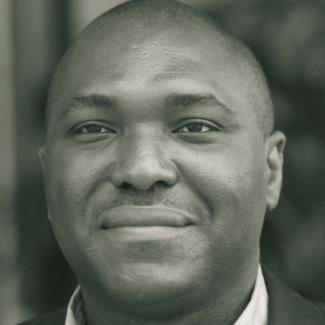Psychiatric problems
Metaphysical explanations

Most Africans view mental disturbances as the result of an external attack on the person. Those who are suffering from mental illness are thought to be under a spell or bewitched. People talk about evil spirits when describing the condition of a mentally ill person. But even if one does not share this view, it is impossible to deny that external factors have an impact on a person’s inner life, which can lead to psychiatric problems. Numerous external reasons have led to the increase in mental illness in Africa.
One important factor is the loss of the social protection previously provided by the family. In Africa, it is generally understood that the family forms a tight-knit unit that helps its members to overcome the many difficulties of life. But the advance of economic liberalism and the trend towards individualisation in our societies have gradually destroyed these ties. The family no longer provides a stable foundation for reacting to inequalities and social difficulties. Unemployment, illness or divorce are increasingly perceived as individual failures. Without the protection of family solidarity, the feeling of social failure can lead to serious depression or other mental-health problems.
Another cause of mental illness is poor nutrition. Scientific studies have shown that imbalances in the intestinal flora can pave the way for mental disorders. Malnutrition can play a role in this context. In Africa, eating habits have changed: more and more processed foods are being imported, while healthy, local foods are receding into the background. Farmers are abandoning old local varieties and cultivating whatever exports best – or they migrate to the cities in search of more lucrative jobs.
The crowded conditions in urban slums, the daily struggle for survival and the feeling of failure that comes from years of unemployment in the city can lead to neurosis (see review essay in D+C/E+Z e-Paper 2019/06, Focus section). Sufferers can be seen on the main streets of African cities: they wander around in torn clothes, have not bathed in a long time and live on scraps of food that they find in the trash. Psychosis can also be the reason.
Changes to Africa’s economic system are contributing to mental suffering. The transition from a traditional to a modern society has knocked many people off balance. In the past, the social web was based on the preservation of the clan, but now the emphasis is on competition and personal success. In poor areas, the struggle for survival has become a violent, even anarchic battle. Mentally unstable people are particularly affected by the dog-eat-dog attitude that arises from such rivalry.
It begins in school: in overcrowded classrooms headed by overworked teachers, competition among children leads to a kind of social selection. The “weak”, in other words those who are most sensitive to stress and pressure, are considered “crazy” and constantly tested by school and society. The people in question react with various strategies to escape the pressure, from consuming psychotropic substances to seeking refuge in religious sects.
Last but not least, a feeling of abandonment can lead to neuroses in children. Such a feeling can be caused by the absence of parents who are consumed with earning a living or by conflict between the parents. Parents who are too focused on social success and want to avoid failure at any cost can also inflict psychological damage on their children.
Witchcraft or evil spirits
In many rural regions in Africa, families tend to cast out persons who become mentally ill. That is done because such a person is considered a curse for the entire family. All members can be ostracised if one of them is seen as crazy. The women and girls cannot marry into other families, for example, because the fear is too great that their descendants will also be afflicted. Often the family does not recognise psychiatric problems for what they are. Instead, they think the person is the victim of witchcraft, evil spirits or other metaphysical ills.
If a mental disorder is thought to have a metaphysical cause, it is logical to look for a metaphysical cure. The most common practice is to bring the affected person to traditional healers or to priests. Ancestor rituals take place in voodoo temples in places like Togo, Benin or Nigeria. The ceremonies are supposed to call upon the ancestors or gods for help. If psychiatric disturbances are associated with violent outbursts, the person is often brutally beaten, restrained for weeks or months, often without food, or chased into the bush or forest to fend for themselves. Some families who are very attached to their mentally-ill children bring them to the city, where there are better treatment options.
Various forms of religious exorcisms are also used to “treat” psychiatric disorders. Both Christian and Muslim exorcists are on the rise in West Africa, where the number of religious sects is rapidly increasing. For exorcists, mental illnesses are the work of evil spirits. They seek to free afflicted people from such spirits through ceremonies and prayers. If mentally-ill persons act violently, that is attributed to them being in the hands of satanic demons, which must be overcome.
The success of religious practices has not been scientifically proven, but it is obvious that belief in divine powers can lead to recovery. When that happens, it is often seen as a miracle. There are many reports of such experiences in the media.
Only when traditional and religious practices are ineffective, people turn to psychiatry as a last resort. In all West African countries, psychiatry is the stepchild of the health-care system. Governments do not provide sufficient resources, so this field is unattractive to medical students. Only very few doctors and nurses specialise in the treatment of people with mental illnesses.
In West African countries, there typically are only a few dozen doctors for many millions of people. Many psychiatric clinics were built in the colonial era and are in poor condition. They serve as places where people who no longer have a place in society are dumped. The assumption that mentally-ill people cannot be medically treated is another part of their extremely negative social image.
Despite the poor conditions and all the institutional and social difficulties, African psychiatrists do a good job. Reports from people who recovered thanks to a stay in a psychiatric clinic are admittedly rare, but that is largely due to the fact that such people would prefer to forget this episode in their life and do not want to talk about it. That attitude results from the stigmatising way that society views the mentally ill.
On the downside, psychiatric treatment is not available to everyone. People without health insurance have to pay out of pocket. The costs can range from 50,000 to 150,000 CFA francs per month (between € 80 and € 200), which many families cannot afford – especially not in the long run. In fact, only the wealthy have the money needed. As a result, psychiatric clinics mostly cater to people from the upper classes who are kicking an addiction and therefore need rehab.
If mentally ill people cannot afford treatment in a psychiatric facility, and their families do not support them, they must eke out an existence on the streets. Some live of garbage. Campaign to educate the African people about this sensitive topic are urgently needed in order to change both the image of the mentally ill and their treatment.
Samir Abi has a degree in population and development studies from the University of Liège, Belgium, and works for Visions Solidaires, a non-governmental development organisation in Togo.
samirvstg@gmail.com







